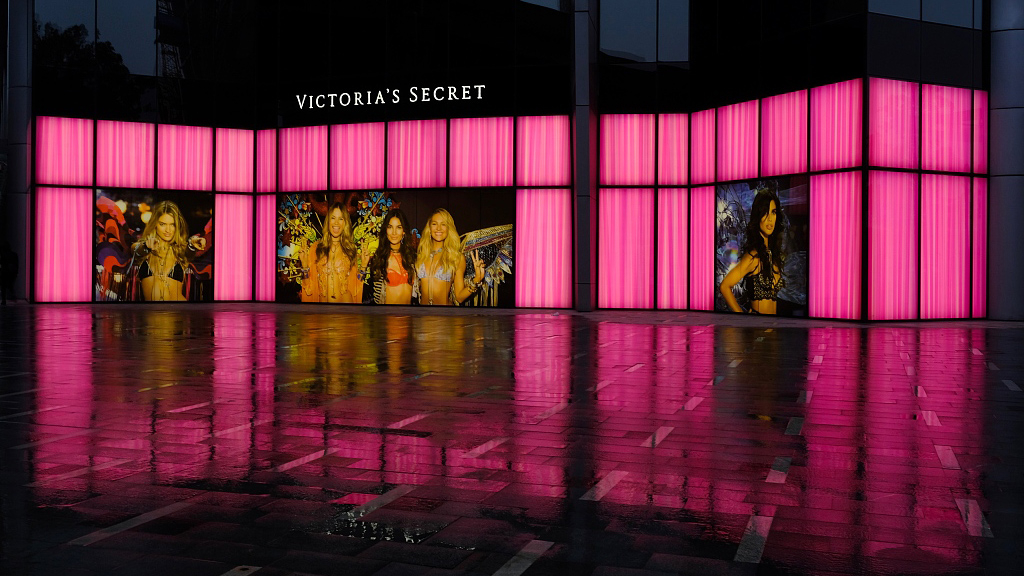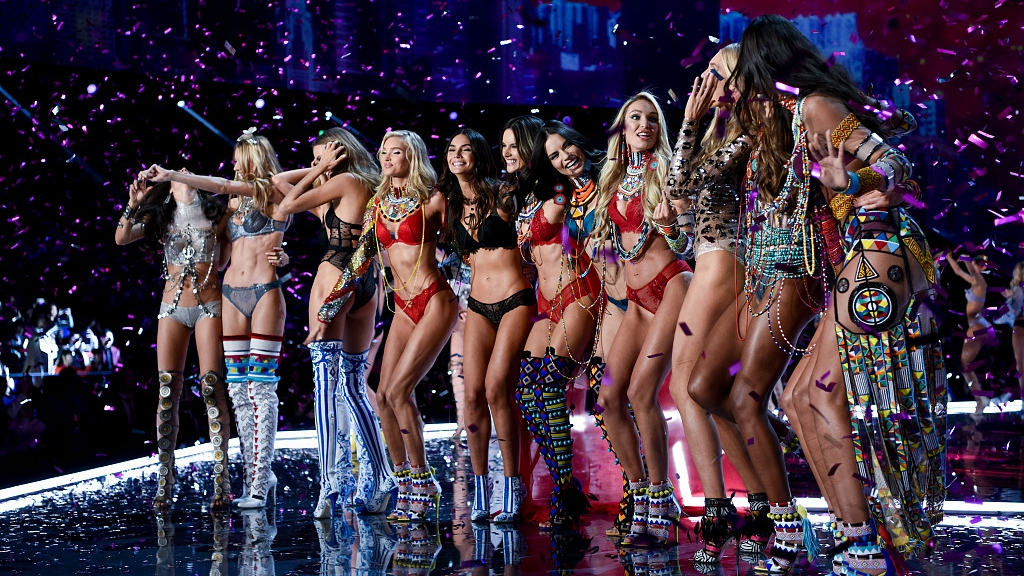02:53

Lingerie brand Victoria's Secret officially canceled its annual fashion show this year. What's behind the brand's decline? Its parent company, L Brands, says that it wants to "evolve the marketing" of the underwear giant, and calling off the catwalk show had no immediate impact on sales.
There are two main arguments as to why the once ultra-popular lingerie company decided to pull its signature fashion show off air.
One school of thought is that society has become so progressive that people cannot tolerate the lack of inclusiveness of the fashion show, which has never hired any plus size or trans models to walk the runway.
Another camp argues that technology, not morality, led to the fashion show's demise. It has been said that audiences used to wait for a year to see the Victoria's Secret show fulfill their visual desires. Now, thanks to smartphones and social media, they needn't.

The 2017 Victoria's Secret fashion show in Shanghai, China. /VCG Photo
The 2017 Victoria's Secret fashion show in Shanghai, China. /VCG Photo
Victoria's Secret began the tradition of its annual televised runway show in 2001 when television entertainment had begun to boom. But thanks to the later dominance of the internet, people can browse similar content anytime, anywhere. This has taken a toll on the viewership of the Victoria's Secret fashion show.
However, it's not just runway show that is in trouble. L Brands has seen a decline in Q3 sales by 3.5 percent year over year to 2.7 billion U.S. dollars. By brand, Victoria's Secret sales fell 7.6 percent to 1.41 billion U.S. dollars.
This is a double whammy for L Brands allowing for the fact that the Royal Bank of Canada downgraded shares of L Brands from an "outperform" rating to a "sector perform" rating and decreased their target price for the stock in August this year. Citigroup analyst Paul Lejuez in July commented that the management is "slow to implement meaningful change" with "cultural norms shifting away" from the company.
Victoria's Secret has struggled to adapt as consumers in the #MeToo era have shunned the company's sensual advertising campaigns. In a changing world, beauty is more frequently defined by women themselves.
John Mehas, CEO of Victoria's Secret Lingerie at L Brands, said Victoria's Secret needed to "evolve", especially when younger consumers are after body-positive start-ups from the likes of Adore Me, Aerie and ThirdLove for bras and underwear. They are shopping more for comfort rather than sex appeal. It seems as though Victoria's Secret needs to re-brand itself and come back in a different way. Goodbye, angel wings.
(CGTN's Xia Cheng also contributes to this story.)